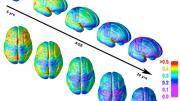In his Commencement address, President Summers reviewed his priorities. A detailed report on his tenure will appear in the next issue.
Today, I speak from this podium a final time as your president. As I depart, I want to thank all of youstudents, faculty, alumni, and staffwith whom I have been privileged to work over these past years. Some of us have had our disagreements, but I know that which unites us transcends that which divides us. I leave with a full heart, grateful for the opportunity I have had to lead this remarkable institution.
 |
| Lawrence H. Summers |
| Photograph by Stu Rosner |
Since I delivered my inaugural address, 56 months ago, I have learned an enormous amountabout higher education, about leadership, and also about myself. Some things look different to me than they did five years ago. And yet the convictions I expressed as I entered Harvard’s presidency I feel with even more urgency these five years later. It is the urgency, and the possibility, of all Harvard can accomplish in the next years that I want to focus on this afternoon.…
[A]mong universities, Harvard stands out. With its great tradition, its iconic reputation, its remarkable network of 300,000 alumni, its unmatched capacity to attract brilliant students and faculty, its scope for physical expansion in Allston and its formidable financial resources, Harvard has never had as much potential as it does now.…
And yet, great and proud institutions, like great and proud nations at their peak, must surmount a very real risk: that the very strength of their traditions will lead to caution, to an inward focus on prerogative and to a complacency that lets the world pass them by.
And so I say to you that our University today is at an inflection point in its history. At such a moment, there is temptation to elevate comfort and consensus over progress and clear direction, but this would be a mistake.…We can spur great deeds that history will mark decades and even centuries from now. If Harvard can find the courage to change itself, it can change the world.…
Yes, I have these last years been a man in a hurry. My urgency boils down to this: For an institution like ours to make the great contributions the world rightly expects of us, we cannot rest complacent on this, the more comfortable side of innovation; on this, the more familiar side of the lectern; or, even, on this, the reassuringly red-brick side of the river.
Harvard mustwe mustcross over:
Cross over from old disciplines to new;
Cross over from old structures of governance to new;
Cross over from outdated lectures to new, active modes of learning;
Cross over from the confines of Harvard Square and put down new, ambitious stakes, in Allston and beyond.
We owe it to those who come after us to become for this city, this region, this nation, and this world a center of human improvement.…
I am honored to have served as your president during the early days of what I hopeand believewill be Harvard’s greatest epoch. I have loved my work here, and I am sad to leave it. There was much more I wanted, felt inspired, to do. I know, as you do, that there are many within this community who have the wisdom, the love of Harvard, the spirit of service, and the energy that will be necessary to mount the collective efforts that this moment in history demands.
I bid you farewell with faith that even after 370 years, with the courage to change, Harvard’s greatest contributions lie in its future.





